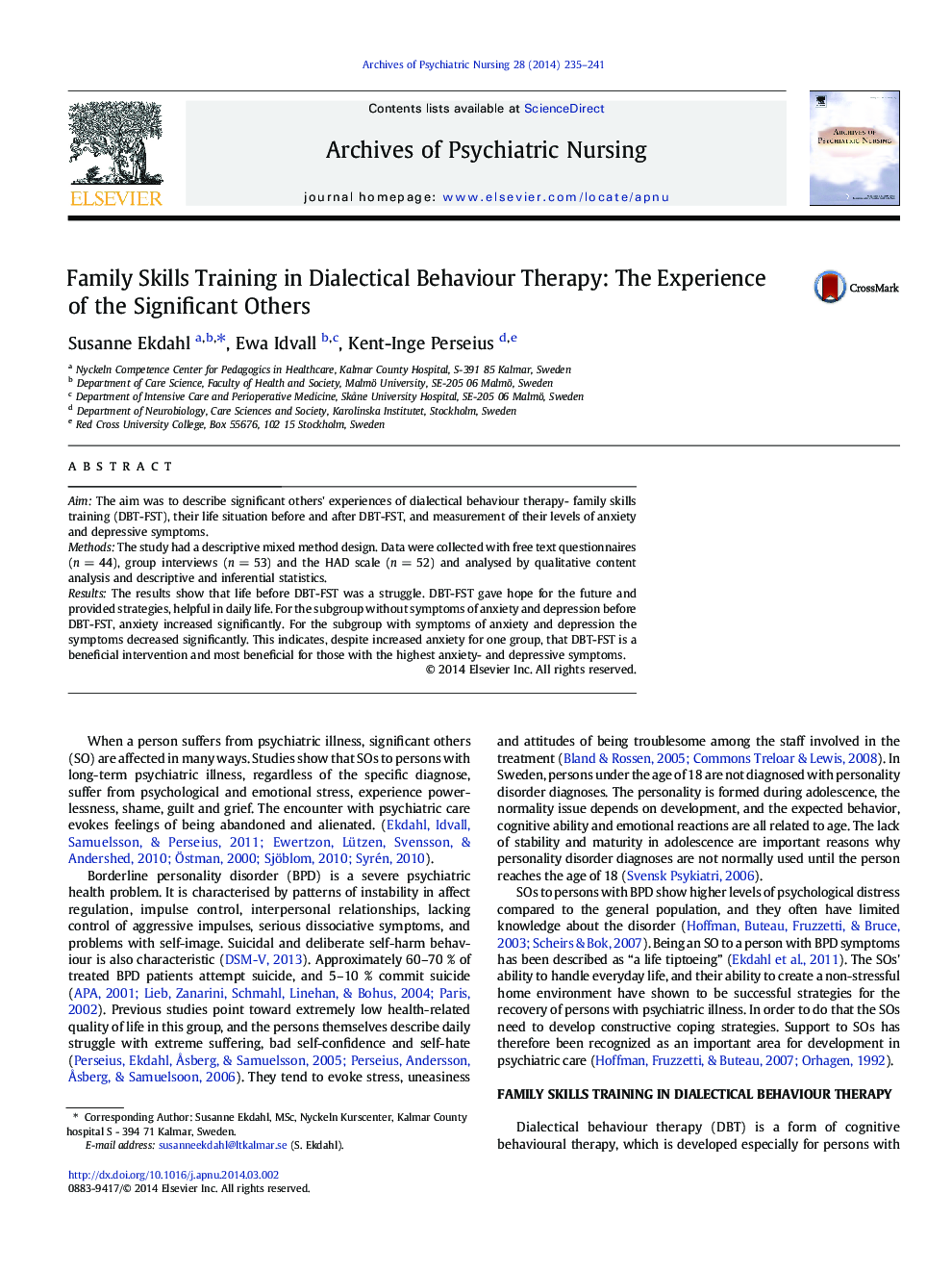| Article ID | Journal | Published Year | Pages | File Type |
|---|---|---|---|---|
| 314948 | Archives of Psychiatric Nursing | 2014 | 7 Pages |
AimThe aim was to describe significant others' experiences of dialectical behaviour therapy- family skills training (DBT-FST), their life situation before and after DBT-FST, and measurement of their levels of anxiety and depressive symptoms.MethodsThe study had a descriptive mixed method design. Data were collected with free text questionnaires (n = 44), group interviews (n = 53) and the HAD scale (n = 52) and analysed by qualitative content analysis and descriptive and inferential statistics.ResultsThe results show that life before DBT-FST was a struggle. DBT-FST gave hope for the future and provided strategies, helpful in daily life. For the subgroup without symptoms of anxiety and depression before DBT-FST, anxiety increased significantly. For the subgroup with symptoms of anxiety and depression the symptoms decreased significantly. This indicates, despite increased anxiety for one group, that DBT-FST is a beneficial intervention and most beneficial for those with the highest anxiety- and depressive symptoms.
